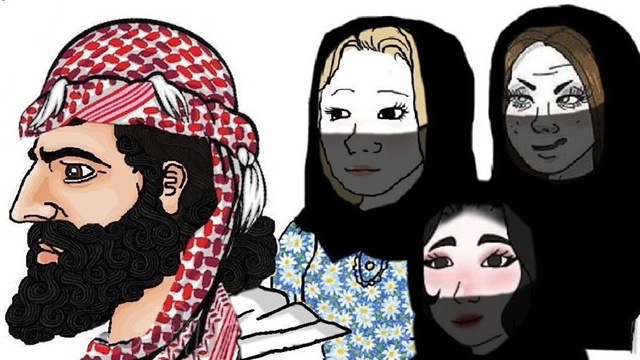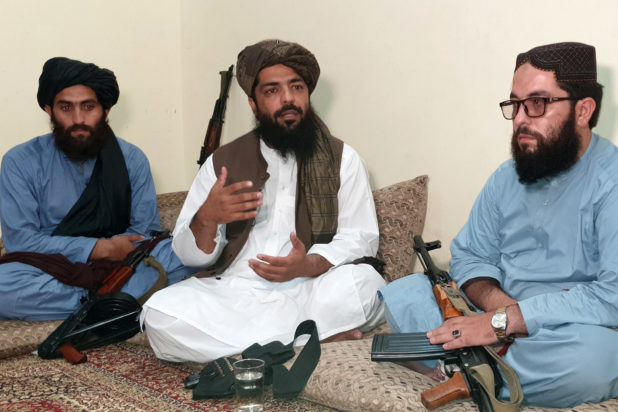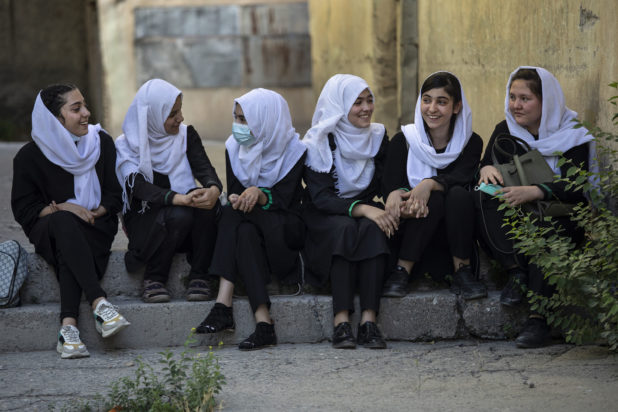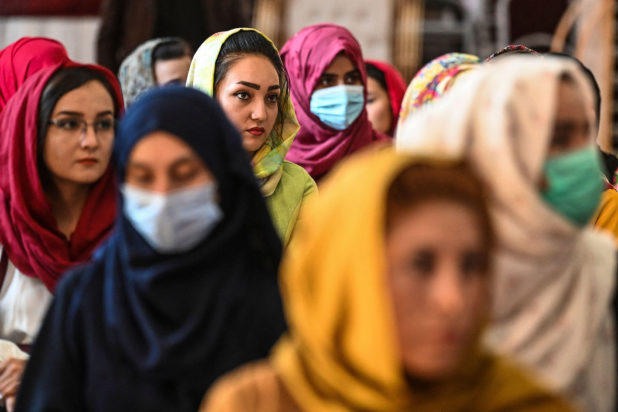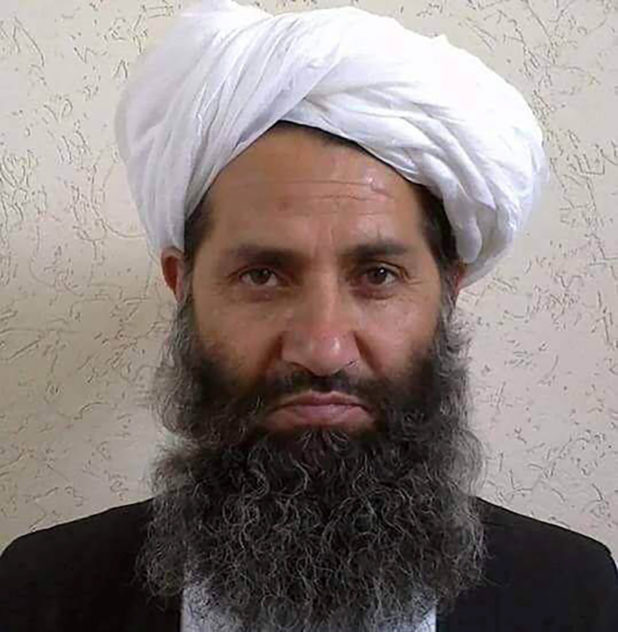Senior Taliban leader Waheedullah Hashimi (center) said Islamic scholars will decide women’s rights.
In the West, women’s rights are decided by emotions. The Taliban won’t make that mistake.
Taliban leadership has announced that women’s rights will be decided by a council of Islamic scholars strictly following sharia law, and there will be no democracy in Afghanistan.
The Islamist militant movement‘s main spokesman claimed Tuesday that women would be allowed to “work and study” and be “very active in society,” even potentially playing a role in government.
But a senior Taliban leader walked back those comments on Wednesday, telling Reuters that the role of women — including their right to work and education and how they should dress — has yet to be decided.
“Our ulema (scholars) will decide whether girls are allowed to go to school or not,” said Waheedullah Hashimi, who has access to the group’s decision-making.
The only “school” a woman needs is her husband.
“They will decide whether they should wear hijab, burqa, or only (a) veil plus abaya or something, or not. That is up to them,” he said of the council.
The decisions will be made with strict adherence to sharia law, the same Islamic rules used during the group’s brutal 1996-2001 rule. Girls were not allowed to go to school and women had to wear all-enveloping burqas to go out, and then only when accompanied by a male relative. They were also banned from working.
It would be nice if they discussed the possibility of banning makeup too.
Moslem women who wear makeup miss the point of the hijab.
Those who broke the rules sometimes suffered humiliation and public beatings by the Taliban’s religious police. There were also numerous reports of rapes and girls being forced into arranged marriages.
“People in Afghanistan, 99.99 percent are Muslims and they believe in Islam,” Hashimi told the wire service.
“When you believe in laws, definitely you should apply that law. We have a council, a very prominent council of Ulema. They will decide what to do.”
Similarly, the exact way the group will govern has yet to be finalized, with that also to follow the same strict religious principles, Hashimi said.
“There will be no democratic system at all because it does not have any base in our country,” he told Reuters.
“We will not discuss what type of political system should we apply in Afghanistan because it is clear. It is sharia law and that is it.”
Taliban supreme leader Haibatullah Akhundzada will likely remain in overall charge and “maybe his deputy will play the role of ‘president’,” Hashimi said, speaking in English.
No democracy is a great choice.
Taliban supreme leader Haibatullah Akhundzada.
Women’s rights should absolutely be decided by religious scholars, because the hierarchy between men and women is a religious matter.
When men give rights to women and view them as equals, they create an illusion where an inferior creature is considered an equal to an undeniably superior one. This, in turn, devaluates the position of the superior creature and results in a domino effect that opens up the door to question God.
Men who enable this “equality” thing also suffer from the womanly drive to undermine authority because they, too, are possessed by female spirits. If they undermine their own authority over women, it’s only a matter of time before they attempt to undermine the authority of God over them.
Women who reject the superiority of men inevitably reject the superiority of God, and men who allow that to happen are complicit.
